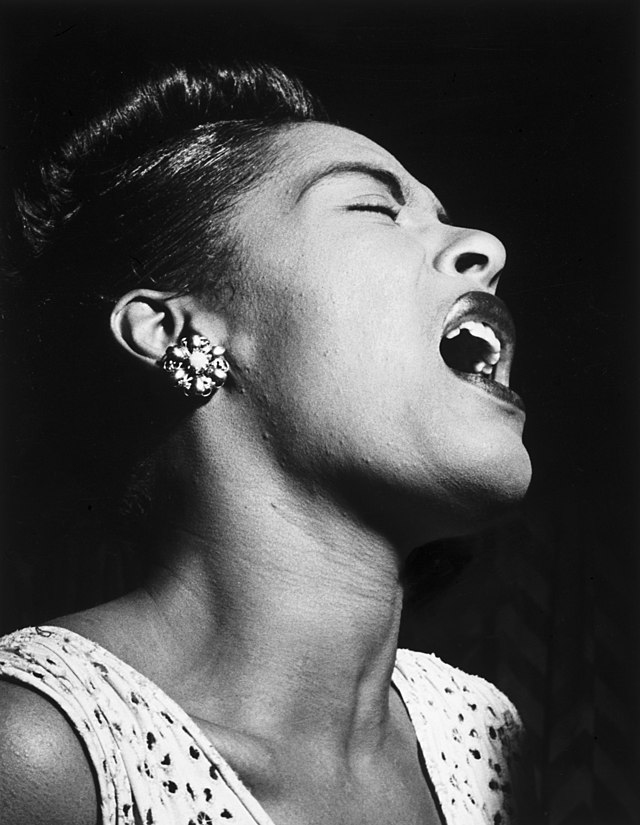I love jazz in the holidays because it soothes suffering while lighting a path to joy.

And yet, the music was born out of sorrow in slavery.
Listening to jazz with slavery in mind recalls the pain of our African American sisters and brothers.
“The foundation of the United States rests on the sweat of my people.” Duke Ellington
But, good jazz makes its way to deliverance.
Five claps take us there.
Clap #1: Jazz relates to pain
If Jazz music takes us from misery to joy, we must recall a fact.
From 1525 to 1866, 12.5 million Africans were seized, shackled and shipped to . . .
- North America
- South America
- the Caribbean Islands
About 388,000 reached North America.
Music, for slaves, began as a melancholy narrative of their exile from home.
Sometimes I feel like a motherless child Sometimes I feel like a motherless child Sometimes I feel like a motherless child A long way from home, a long way from home Sometimes I feel like I'm almost done Sometimes I feel like I'm almost done Sometimes I feel like I'm almost done And a long, long way from home, a long way from home True believer True Believer A long, long way from home A long, long way from home
Olaudah Equiano, in his seminal work on life in slavery, tells us . . .
“We are almost a nation of dancers, musicians and poets. Thus, every great event is celebrated in public dances which are accompanied with songs and music suited to the occasion.” The Interesting Narrative of the life of Olaudah Equiano, p. 34
Facing pain is the beginning of survival.
Clap #2: Jazz relates to stength
Jazz is rebellion against suffering; not denial, rebellion.
“Time and again, whites watched almost uncomprehendingly as slaves used sound and coordinated bodily movements to turn work into performance.” Arthur Singleton, Sounds of Slavery
The “field call” and the “complaint call” gave birth to the blues.
Out of the blues, jazz was born like an unbroken mast in the storm.
Ponder this spiritual, “Lord Don’t Move My Mountain.”
Now Lord don't move my mountain But give me strength to climb And Lord, don't take away my stumbling blocks But lead me all around
Music-making wove through every facet of slave life.
Songs emerged as a tool for . . .
- celebrating events
- expressing feelings
- remembering history
- bringing people together
Clap #3: Jazz relates to humor
Humor is a big part of jazz. Humor is a big part of survival.
Cab Calloway’s antics in “Minnie the Moocher” ooze silliness.
He recorded this piece many times including the movie, Blues Brothers.
She had a dream about the king of Sweden; he gave her many things, that she was needin'. He gave her a home built of gold and steel, a diamond car, with the puh-latinum wheels. Hi-de-hi-de-hi-de-hi-de-hi-de-hi-de-hi Ho-de-ho-de-ho-de-ho-de-oh Skeedle-a-booke-diki biki skeedly beeka gookity woop! A-booriki-booriki-booriki Hoy!
Humor in jazz reminds us not to take ourselves seriously no matter the circumstances.
Clap #4: Jazz relates to faith
No matter how dark the night, jazz lifts our hope for freedom.
Freedom of expression.
Great jazz ushers listeners into great joy.
How? The connection between the music and faith.
Where there’s faith, there’s hope.
Consider the potent spiritual “Nobody knows”:
Nobody knows the trouble I've seen Nobody knows but Jesus Nobody knows the trouble I've seen Glory, Hallelujah Sometimes I'm up, sometimes I'm down, oh, yes Lord Nobody knows the trouble I've seen Nobody knows but Jesus Anybody knows the trouble I've seen Glory, Hellelujah.
“Without music, life would be a mistake. I could only believe in a God who danced.” Friedrich Nietzsche
I would add, I can only believe in a God who knows suffering.
The roots of jazz sink deep in Christian faith.
One of the founding fathers of jazz music, Duke Ellington, was deeply influenced by his faith.
“His great passion and work sprang from an awareness of the presence of God in all of life.” Jana Tull Steed, Ellington: A Spiritual Biography
Brought up in Baptist and A.M.E. Zion churches, Ellington often wove gospel tunes into his jazz.
The presence of a loving God was real to him as seen in one of his lyrics.
“Forgive us our necessities, and the hunger that makes them necessary.”
Clap #5: Jazz relates to joy
Jazz explores unbounded joy through improvisation.
Listen to this tenor sax rendition of Silent Night at the Jazz, TX nightclub in San Antonio.
The kind of joy portrayed in jazz music is not shallow.
It’s the same type of joy displayed in the New Testament, a joy combined with endurance for all occasions.
Whatever season of life you are in this holiday season, listen to some jazz for . . .
- comfort in pain
- new strength
- lighter days
- deeper faith
- fresh joy
What’s your plan for an inspiring season?

Another outstanding piece. Spot on! And for the record, Steve is the one who introduced me to jazz!
Fond memories, my friend, from that late night jaunt to Denton for Maynard Ferguson and his big bop nouveau band at the UNT arena in the middle of final exams.
Awesomeness!
How do I reply to this? Thank you Scott.